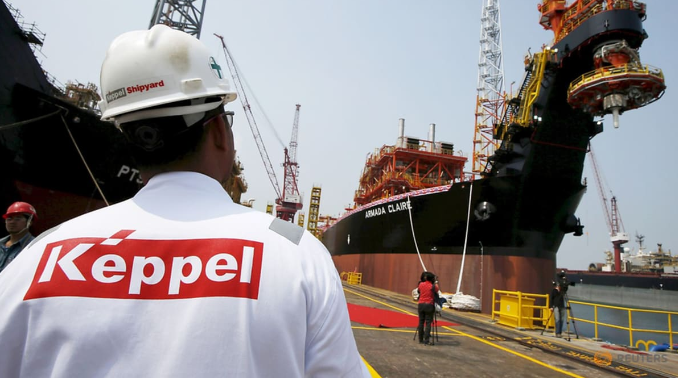SINGAPORE — Workers’ Party (WP) Members of Parliament have submitted a series of parliamentary questions concerning six former senior management staff
SINGAPORE — Workers’ Party (WP) Members of Parliament have submitted a series of parliamentary questions concerning six former senior management staff of Keppel Offshore and Marine Ltd (KOM), who were issued stern warnings in lieu of prosecution for offenses under the Prevention of Corruption Act. The questions target the reasoning behind the decision not to prosecute, the transparency of the process, and its implications for Singapore’s anti-corruption stance.
These questions are scheduled to be addressed during the next parliamentary session on Feb. 6, with WP MPs including Dennis Tan (Hougang SMC), Gerald Giam, Leon Perera (Aljunied GRC), He Ting Ru, and Louis Chua (Sengkang GRC) leading the inquiries.
Among the questions, Tan and Giam have asked why the names of the six former senior management members were not disclosed by the Corrupt Practices Investigation Bureau (CPIB) and whether their ages and nationalities could be revealed.
Sengkang GRC MP Chua has requested that Prime Minister Lee Hsien Loong clarify the factors considered in the decision not to prosecute, including the culpability of each individual, the evidence available, and the appropriateness of stern warnings in such cases. He also questioned how this aligns with Singapore’s commitment to a zero-tolerance policy toward corruption.
On Jan. 12, CPIB announced that it had completed its investigations into the KOM case and issued stern warnings to six individuals on Jan. 11. The case involved the payment of S$73 million in bribes to officials at Brazil’s state-owned corporation, Petroleo Brasileiro SA. CPIB noted that the case was complex and transnational, with key witnesses and documents located in multiple jurisdictions, which presented challenges in gathering evidence.
Leon Perera, MP for Aljunied GRC, also raised concerns regarding how the decision not to prosecute may affect Singapore’s international reputation for its anti-corruption stance, as well as the deterrent effect on future cases involving Singaporeans.
Here is the list of WP’s 10 parliamentary questions on the KOM corruption case:
Dennis Tan: How did CPIB arrive at the decision to issue stern warnings to the six KOM staff, given the magnitude of the bribes and the fine KOM paid?
Dennis Tan: Is it in the public interest to disclose the names of the six former KOM management staff who received stern warnings?
Gerald Giam: Why wasn’t the statement of facts from the Deferred Prosecution Agreement with the U.S. Department of Justice considered sufficient evidence to prosecute the six staff?
Gerald Giam: How many times has CPIB reached out to overseas witnesses or sought documents since the U.S. DOJ agreement, and what responses were received?
Gerald Giam: Why are the names of the six former KOM staff not disclosed, and can their ages and nationalities be revealed?
He Ting Ru: Over the last five years, how many Singapore companies have been investigated or found guilty of offences under foreign anti-bribery laws?
Louis Chua: What offenses under the Prevention of Corruption Act were considered for prosecution for the six KOM individuals, and what are the penalties for these offenses?
Louis Chua: What weight was given to the factors considered in deciding not to prosecute, and is this consistent with Singapore’s stance on corruption?
Leon Perera: Does the decision not to prosecute the six individuals represent a departure from Singapore’s zero-tolerance policy on corruption, and how will it affect future deterrence?
Leon Perera: How might the decision not to prosecute affect Singapore’s reputation for having a strict anti-corruption stance?
The WP’s questions reflect growing concerns about transparency, the adequacy of the sanctions, and the long-term impact of the decision on Singapore’s global anti-corruption standing.



COMMENTS